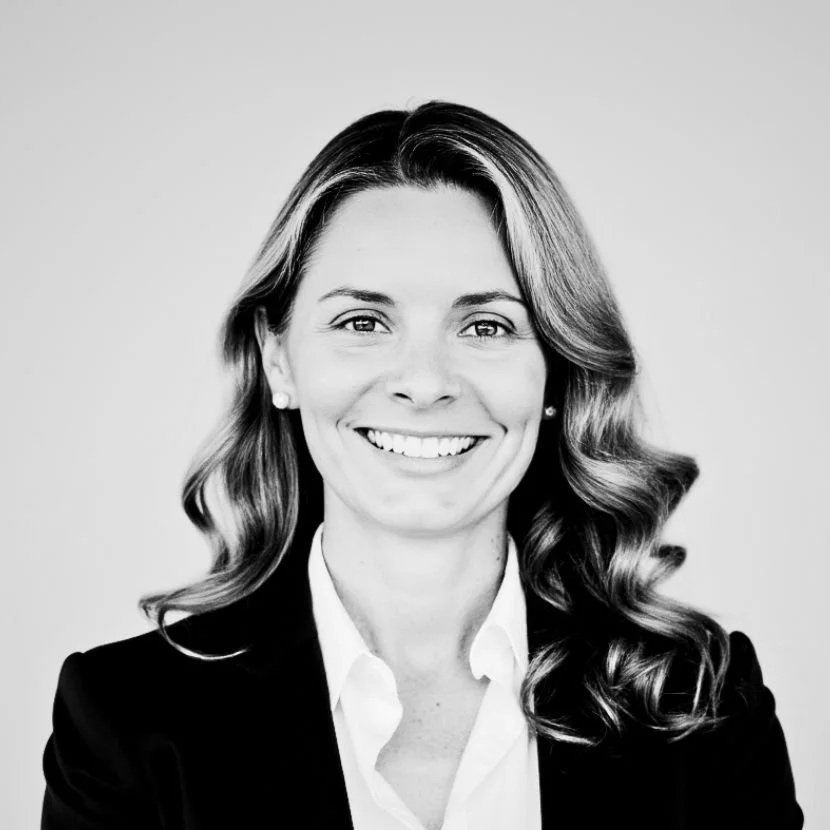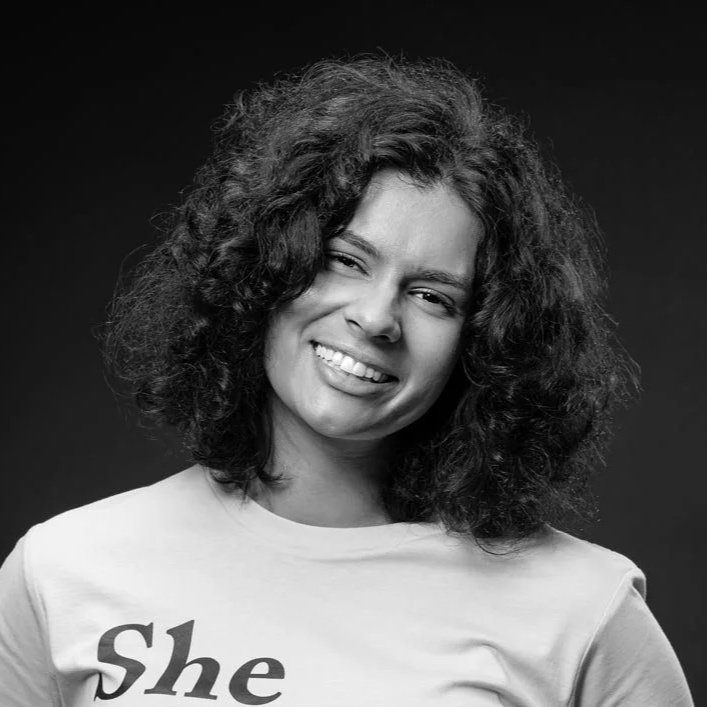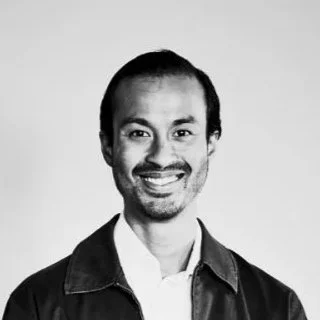Erfan Daliri On Redesigning Society To Create True Social Change
Erfan Daliri is an author, poet, activist and social change consultant with over 15 years of experience across participatory development, settlement services, youth education, arts, activism and events management.
Erfan is particularly passionate about empowering youth and working towards gender equality, environmental protection and social harmony. He is the Founding Director of Newkind Conference, Advisor to Amnesty International Australia, and has recently completed his Master in Communication for Social Change.
An internationally toured spoken word artist, motivational speaker and resilience trainer, Erfan seamlessly weaves the themes of economics, eco-psychology and spirituality into performance philosophy sets that leave audiences breathless. His latest book, Raising Humanity, discusses the underlying causes of injustice and inequality and offers tangible pathways to socio-economic justice.
Erfan discusses what he believes is holding society back in order to create the change needed to address economic injustice and climate change, whilst sharing his insights into youth empowerment and exciting plans for the upcoming Newkind Conference.
Highlights from the interview (listen to the podcast for full details)
[Tom Allen] - Could you please share a bit about your background and what led to your work as a social change consultant?
[Erfan Daliri] - I started off working in the field as a volunteer, as a teenager with my father. My father was a Director of the Townsville Intercultural Centre growing up, and that meant I was going out on field trips and projects with him in remote communities, working with Indigenous Australians, working with refugee communities. So I started there as a teenager and then continued to get further and further involved, especially in the youth engagement part, until eventually I went back to university, after doing my engineering degree. I went back to do a Masters in Communication for Social Change. It was a pretty early influence in my life, both my father and my mother working with migrant communities, with refugee communities, with Indigenous communities. So I think the two of them had a pretty big influence in that. And then one thing led to another. Before I knew it, I was in my twenties, running projects and consulting to NGOs and service providers.
It sounds like you've got a really diverse background there, Erfan. And of course all of that's culminated in leading you to be the founding director at the Newkind Conference, which we're a proud media partner of this year. I'm really curious to hear why you created this five day experience, which is really targeted at bringing 500 purpose-driven people down to Marion Bay in Tasmania? What can participants expect at this next conference, which is going to run from late January to February next year?
I guess that the 10 or so years that I spent working in community, with community, going back to university to do my Masters in Communication for Social Change, all of those experiences kind of left me feeling a little bit underwhelmed at the success of social change movements, at the success of the left, at the lack of success of activism. I was feeling a bit disheartened and I thought, well how are we going to fix this after so many years, decades, the hundreds of years people have been committing themselves to try and create a better world, why does it feel like we're moving backwards? Why does it feel like we're not being effective?
So I went on a bit of a journey. I started writing poetry, became a spoken word artist, eventually completed my Masters, and I began to form this idea that, festivals particular are a really powerful tool for transformation. But the way it was being used in society was that it involves, usually lots of music and drugs or alcohol, a lot of fantasy or escapism. So I decided to use the platform of a transformational festival, but then program it in such a way that would actually empower those people who want to make a difference in the world to be able to make those changes.
The truth is, I think everyone wants to do good in this world. And everyone, at our core, we all are all good humans. I think it's that lack of a sense of empowerment to actually effect change in society that is holding us back.
So I made it my mission to try and empower as many people as I could with Newkind by programming the content that I felt would help join dots for people. What's education got to do with social change? What's redesigning our economy got to do with it? What's the role of gender equality? What's the role of childhood education and parenting? And then helping activists really level up, as far as change makers. And rather than just pointing out social injustice issues that we don't agree with, really equipping them with the tools that they need to effect systems change in society, which is what social change really is. It's adjusting the systems and structures of power in society that create injustice. So that's what led to Newkind, as an idea back in 2015, before we finally launched the first one in 2017.
It's had some really positive feedback from the participants who went there last year and we're very much looking forward to heading down there end of January.
I'm curious to know a little bit more about your book called Raising Humanity. It discusses the underlying causes of injustice and inequality. So what do you believe then are the tangible pathways to socioeconomic justice?
The book also came out of the same experience that led to Newkind, but also, the three or four years of running Newkind and the new knowledge bases that I was privy to over the course of those four or five years. And it brought together themes of economics and eco-psychology and the Indigenous knowledge, and it discusses two main themes. One of them is this idea of raising humanity in that early childhood education, and education in general, is social change.
We cannot pretend to want to change the world and make it a better place if we give a lack of attention to childhood education, and that fact that we are in fact raising humanity in our homes and in our living rooms with our children.
So that was one theme. The other theme is this idea that humanity is in itself an organic, growing, evolving kind of entity, a single organism, and we need to treat social change and activism as a way of education again, in another form of parenting society, in a way. So those of us who see ourselves as change makers, those of us who want to create a more just and sustainable world, we need to move beyond the adversarial kind of bipartisan politics idea of creating change as one against the other, and see it as the education, as the parenting of society.
Those who can see a brighter, better future should then apply themselves to educating society and changing the structures and infrastructures of society that people move within.
And through that, I guess there is a massive connection to ecology and nature and the environment, and the fact that the most sustainable, the most regenerative, the most self-sustaining organism in the universe is nature. The nature from which we have sprung.
Much of the injustice that we see in society, much of the suffering, much of the economic hardship, comes from or stems from this disconnection from the natural systems from which we have sprung.
And it's not about living barefoot in trees and eating off of berry bushes, but more so designing human systems that reflect the functions of nature. Circular economies, this theme that keeps coming up in society, more so lately. But nature is the most perfect example of that. Our economy has diverged from that a little bit.
There's many underlying principles within nature by which we could redesign human civilisation to become a more just and self sustaining model.
There's some great points there Erfan. So given your passion and experience in working with youth, and these rising voices of young leaders like Greta Thunburg, how might youth best be empowered to fight for a future that they thrive in?
I think the youth know what needs to happen and they know why it needs to happen. So they have a greater understanding, this generation. And by this generation, I mean those who are currently in their teens. They intrinsically, inherently have this slightly heightened awakened consciousness that previous generations had to work a lot harder for. They are born with it now. They know why and what, and as far as empowering it, it's just a matter of giving them the tools of how. And giving them the infrastructure of self confidence, self worth, some resilience tools, because let's face it, the young people of today, the teenagers and those in their twenties today, are going to have to deal with, in a couple of decades, a society that no one has yet had to deal with. And the stresses upon them, the anxieties they are managing while still going to school and doing everything else, is head and shoulders above what any previous generation has had to deal with.
So it's that basic support, guidance, confidence, resilience. As far as what they can do, there is no limit to what they can do. And I think adults just need to step out of the way and move beyond this idea of, how do we engage the youth in what we feel needs to happen? Organisations still have this idea like, ‘oh, we can't engage the youth with our projects.’
The fact is the youth are engaged, they're doing the work and the organisations, who are a bit more rigid, need to step aside and allow for the agility of the youth movement to let it happen.
And it's not just Greta and a number of leaders, but it's happening across schools, across this world. And it's just a matter of grown adults stepping out of the way and giving them some basic tools of resilience, self-confidence and trust, and letting them change the world the way they already know how.
I'm really keen to hear about one of the biggest lessons that you learned from completing your Masters in Communication for Social Change…
There were a lot of lessons that I gained through that Masters. There was a bit of coursework to begin with obviously, so there was development and conflict management and conflict resolution coursework. But in the actual thesis writing, there were a couple of big things that stuck out for me and one was how long climate change science has been on the money for, and how long this has been an issue. And the second thing was the extent of research that exists out there about climate change communications, and how it's failing. And it's not something new. We've had the United Nations convene the IPCC, the Intergovernmental Panel on Climate Change, that was convened in 1988. And that blows a lot of people's minds. It's hard to imagine just how long it's been an issue for.
31 years.
Yeah. And that's how long ago that was convened. So it was an issue before then. And there's a massive extent of research, not just on climate science, that's unshakable, but there's an extent of research on climate science communication and why it's been failing and what's been the downfall of it.
And what I found quite fascinating was that raising awareness is not the answer. Not only is it not the answer, it in fact often is counter productive if you simply raise awareness without nuanced, targeted messaging that takes into account receivers, preexisting frameworks, and schematic interpretation. Raising awareness around something like climate change, just expecting people to respond to fear, has been the downfall of the climate change movement.
In that we think that if you give someone a sense of fear about the looming destruction, that they might actually want to do something about it. Whereas the research quite clearly shows that it's the opposite. Using fear-based messaging triggers people into complex emotional management systems whereby they shut down and they're more likely to deny climate science because of the trauma instigated by the fear inducing messaging. It's quite fascinating-
It really is and I feel like we could talk just on that topic alone all afternoon.
Absolutely. I wrote 12,000 words on it and I could talk all day on just that.
Tell us about some of the different organisations or social enterprises that you're aware of (you have lots of social entrepreneurs coming down to the Newkind Conference). Which of those do you think are doing a great job at tackling these social, cultural or environmental problems?
I think I touched on this earlier, with regards to the rigidity and the agility. And that's rigidity referring to some of the organisations, and the agility referring to the youth movement. So it is in fact the school strikes and the youth climate movement that is the most effective in truly recognising and acknowledging the underlying factors that are leading to climate change. And then as far as organisations, I feel because organisations take so long to find their own identity, and over decades they establish these really strong identities and personalities within organisations, they struggle at times to keep pace with the rate at which the world is changing. And that's something that I touch on in the book as well, this rate of exponential change is... We throw this word exponential around, but if you actually look at a graph and study it, what the next financial graph looks like, we understand that every moment the world is changing faster than it was a moment ago.
I feel organisations, at times, struggle to keep pace with what's required and what the youth are really aware of, which is seeing and recognising that gender inequality is leading to climate change. That Indigenous non-representation or dispossession of land and culture is leading to further economic injustice and climate change.
I think the youth have done a really good job of recognising these underlying symptoms and acknowledging that you can't address climate change through policy changes and through some green energy solutions. It's really about addressing the fundamental core issues. And I truly believe that the youth these days get that intrinsically, they understand it.
Some organisations are connecting with youth quite well. I'm working on a project with the Red Cross at the moment, which is looking at empowering youth from diverse backgrounds who may not usually be singled out as leaders, and actually empowering leaders. And there are organisations out there that are doing really good work connecting with youth, but it is, again, it's the kid these days. They're on it. They know what needs to happen. So I don't want to single out any particular organisation as far as they're doing an incredible job.
I feel like it's about getting to those underlying principles and redesigning society, rather than designing projects to address a single symptom. It's a matter of redesigning society to address the underlying causes.
I 100% agree. It's that system change that is all so important, isn't it? To finish off then, what books or resources would you recommend to our listeners?
Depending on where their strengths are, so my whole idea is that in order to address social change effectively, we need to see it as an interconnected network of ideas and different fields of knowledge.
If a person's already well versed in eco-psychology, then I would say go and study economics, and find out a bit more about how we got here from an economic perspective. If someone comes from an economics kind of background, or an activism background, I would say look into the work of eco-psychology, look into the work that reconnects. If you're lacking in understandings of Indigenous perspectives then perhaps go there, because I truly believe that it's not a particular field or way of thinking or school of thought that's going to lead us there, it's about rounding out and understanding how we need to find holistic solutions by having holistic perspective.
It's a bit about eco-psychology and understanding that the human consciousness is inextricably interconnected with the nature from which it is sprung. It's about understanding economics in order to have intelligent conversations about economics. It's about understanding childhood education and psychology, and knowing how to frame messaging in order to affect behavioural change. It's about understanding what toxic masculinity actually is, rather than getting triggered by the words toxic masculinity and not really understanding what toxic masculinity, and/or toxic femininity means. So it's about rounding out our knowledge.
That's what I would just suggest to any listeners out there, if you're strong on a particular area, find your blind spots and try and connect more dots. Because the picture really is a ‘connect the dots’ kind of picture. And that's the only way we're going to get holistic solutions is if we connect all of the dots.









